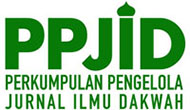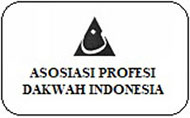Analisis Legitimasi Zakat Profesi dari Dimensi Syariah dan Regulasi di Indonesia (A Legitimation Analysis of Profession Zakat from Sharia and Regulation Dimensions in Indonesia)
Abstract
Keywords
Full Text:
PDFReferences
Ab Rahman, A., Alias, M. H., & Omar, S. M. N. S. (2012). Zakat institution in Malaysia: Problems and issues. Global Journal Al-Thaqafah, 2(1), 35–41. https://doi.org/10.7187/GJAT122012.02.01
Abu Bakar, N. B., & Rashid, H. M. A. (2010). Motivations of Paying Zakat on Income: Evidence from Malaysia. International Journal of Economics and Finance, 2(3), 76–84. https://doi.org/10.5539/ijef.v2n3p76
Aibak, K. (2015). Zakat Dalam Perspektif Maqashid Al-Syariah. Ahkam: Jurnal Hukum Islam, 3(2), 199–218. https://doi.org/10.21274/ahkam.2015.3.2.199-218
Alfaizin, A. W., Insani, T. D., & Herianingrum, S. (2018). Zakat: Concept and Implications To Social and Economic (Economic Tafsīr of Al-Tawbah:103). Journal of Islamic Monetary Economics and Finance, 4(1), 117–132. https://doi.org/10.21098/jimf.v4i1.780
Amalia, A., & Mahalli, K. (2012). Potensi dan Peranan Zakat dalam Mengentaskan Kemiskinan di Kota Medan. Jurnal Ekonomi Dan Keuangan, 1(1), 14869.
Anindyajati, P., & Dharma, A. V. (2019). Faktor-Faktor yang Mempengaruhi Implementasi Pedoman Pelaksanaan Sistem Pengendalian Intern Pemerintah sebagai Suatu Bentuk Kebijakan Publik. Faktor-Faktor Yang Mempengaruhi Implementasi Pedoman Pelaksanaan Sistem Pengendalian Intern Pemerintah Sebagai Suatu Bentuk Kebijakan Publik, 7(2), 51–60. https://doi.org/10.17509/jrak.v7i2.17039
Aziz, M. R. A., & Anim, N. A. H. M. (2020). Trust towards zakat institutions among muslims business owners. Jurnal Ekonomi & Keuangan Islam, 6(1), 1–9. https://doi.org/10.20885/jeki.vol6.iss1.art1
Bahri, E. S., & Arif, Z. (2020). Policy Analysis of Zakat Profession in Indonesia. Test Engineering and Management, 83(May-June), 29059–29067.
Bahri, E. S., Aslam, M. M. A., Hj Hasan, A. A., & Wibowo, H. (2019). Maqasid Al-Shariah in Micro-entrepreneurs Development: an Overview. International Conference of Zakat, 258–267. https://doi.org/10.37706/iconz.2019.182
Bahri, E. S., & Khumaini, S. (2020). Analisis Efektivitas Penyaluran Zakat pada Badan Amil Zakat Nasional. Al Maal: Journal of Islamic Economics and Banking, 1(2), 164–175. https://doi.org/10.31000/almaal.v1i2.1878
Bahri, E. S., & Oktaviani, R. (2019). Zakat Produktif Sebagai Modal Kerja Usaha Mikro. Perisai : Islamic Banking and Finance Journal, 2(2), 101. https://doi.org/10.21070/perisai.v2i2.1686
Bastiar, Y., & Bahri, E. S. (2019). Model Pengkuran Kinerja Lembaga Zakat di Indonesia. ZISWAF : Jurnal Zakat Dan Wakaf, 6(1), 43. https://doi.org/10.21043/ziswaf.v1i1.5609
Baznas. (2019). Statistik Zakat Nasional 2019 (National Zakat Statistics 2019). In Baznas. Baznas.
Ketentuan dan Tata Cara Penghitungan Zakat Profesi/Penghasilan, Berita Resmi Puskas BAZNAS (2017).
Beik, I. S., & Arsyianti, L. D. (2015). Construction of Cibest Model As Measurement of Poverty and Welfare Indices From Islamic Perspective. Al-Iqtishad: Journal of Islamic Economics, 7(1), 87–104. https://doi.org/10.15408/ijies.v7i1.1361
Bin-Nashwan, S. A., Abdul-Jabbar, H., Aziz, S. A., & Haladu, A. (2020). Zakah compliance behavior among entrepreneurs: economic factors approach. International Journal of Ethics and Systems, 36(2), 285–302. https://doi.org/10.1108/IJOES-09-2019-0145
Bouanani, M., & Belhadj, B. (2019). Zakat and Poverty Alleviation in Tunisia Using the Fuzzy Approach. Journal of Quantitative Economics, 17(2), 421–432. https://doi.org/10.1007/s40953-019-00154-2
Canggih, C., Fikriyah, K., & Yasin, A. (2017). Potensi Dan Realisasi Dana Zakat Indonesia. Al-Uqud : Journal of Islamic Economics, 1(1), 14. https://doi.org/10.26740/jie.v1n1.p14-26
Chaniago, S. A. (2015). Pemberdayaan Zakat Dalam Mengentaskan Kemiskinan. Jurnal Hukum Islam, 13(1), 47. https://doi.org/10.28918/jhi.v13i1.495
Diana, Z. A. (2019). The Welfare of Amil Zakat in Dompet Dhuafa, Central Java. Journal of Islamic Economics Management and …, 1(1). https://doi.org/10.21580/jiemb.2019.1.1.3836
Ely, L., Lobenberg, R., Finlay, W. H., & Roa, W. H. Y. (2005). Optimizing inhalable nanoparticles. Proceedings - 2005 International Conference on MEMS, NANO and Smart Systems, ICMENS 2005, 125–126. https://doi.org/10.1109/ICMENS.2005.96
Embong, M. R., Taha, R., & Nor, M. N. M. (2013). Role of zakat to eradicate poverty in Malaysia. Jurnal Pengurusan, 39(2013), 141–150. https://doi.org/10.17576/pengurusan-2013-39-13
Firdaus, M., Beik, I. S., Irawan, T., & Juanda, B. (2012). Economic estimation and determinations of Zakat potential in Indonesia. IRTI Working Paper Series, WP 1433-07(August), 1–74.
Firmansyah. (2013). Zakat Sebagai Instrumen Pengentasan Kemiskinan dan Kesenjangan Pendapatan. Jurnal Ekonomi Dan Pembangunan, 21(2), 179–190. https://doi.org/10.14203/JEP.21.2.2013.61-72
Fitrianingtyas, R., & Nasution, Z. (2019). Peran Muzakki Terhadap Intensi Zakat Profesi Kota Surabaya. Jurnal Masharif Al-Syariah: Jurnal Ekonomi Dan Perbankan Syariah, 4(2), 173–186.
Ghozali, M., Zaid, A. H., Nadhira, A., & Fauziah, R. (2020). Zakat Analysis of Freelancer Profession. 1st Borobudur International Symposium on Humanities, Economics, and Social Sciences (BIS-HESS 2019), 436, 245–248. https://doi.org/10.2991/assehr.k.200529.050
Hakim, B. R. (2016). Analisis Terhadap Undang-Undang Nomor 23 Tahun 2011 Tentang Pengelolaan Zakat (Perspektif Hukum Islam). Syariah Jurnal Hukum Dan Pemikiran, 15(2), 155–166. https://doi.org/10.18592/syariah.v15i2.552
Handoko, Y. (2014). Implementasi Social and Environmental Disclosure dalam Perspektif Teoritis. Jurnal JIBEKA, 8(1), 72–77.
Harahap, K. (2016). Kebijakan Pengelolaan Keuangan Publik Pada Masa Kekhalifahan Umar Bin Abdul Aziz. Jurnal Ipteks Terapan, 8(2), 58–69. https://doi.org/10.22216/jit.2014.v8i2.424
Herlita, J. (2016). Manajemen Pengelolaan Zakat Profesi di Rumah Zakat Cabang Banjarmasin. Alhiwar Jurnal Ilmu Dan Teknik Dakwah, 04(08), 51–64.
Islamiah, S., & Romli, S. (2019). Persepsi Guru PNS Kecamatan Mersam Kabupaten Batanghari Provinsi Jambi terhadap Zakat Profesi. Jurnal Riset Mahasiswa Dakwah Dan Komunikasi (JRMDK), 1(5), 54–55. https://doi.org/10.24014/jrmdk.v1i5.8881
Ismail, A. S., Mas’udi, M. F., Bahri, E. S., Halim, I., Tajang, M. N., Qasim, F., Hambali, A., & Erianton, P. (2018). Fikih Zakat Kontekstual Indonesia. Baznas.
Janang, J. S., Joseph, C., & Said, R. (2020). Corporate governance and corporate social responsibility society disclosure: The application of legitimacy theory. International Journal of Business and Society, 21(2), 660–678.
John W. Cresswel. (2014). Research Design: Qualitative, Quantitative, and Mixed Methods Approaches. In Journal of Petrology (Vol. 369, Issue 1). SAGE Publications, Inc.
Kadir, A., Hakim, M. R., Syam, F., & Karim, M. S. (2020). Pengunaan Dana Zakat Pada Korban Covid-19 Perspektif Maqashid Syariah. Al-Tafaqquh: Journal of Islamic Law, 1(2), 107. https://doi.org/10.33096/al-tafaqquh.v1i2.61
Kasim, N. M. (2014). Paradigma zakat profesi dalam kehidupan masyarakat gorontalo. Al-Hurriyah, 15(1), 78.
Lubis, Deni; Hakim, Dedi Budiman; Putri, Y. H. (2018). Mengukur kinerja pengelolaan zakat di badan amil zakat nasional (baznas). JEBI (Jurnal Ekonomi Dan Bisnis Islam), 3(23), 1–16.
Lutfi, M. (2020). Peran Negara Dalam Optimalisasi Zakat Perspektif Konstitusi Ekonomi. Sakina: Journal of Family Studies, 4(1), 1–10. https://doi.org/10.18860/jfs.v4i1.430
Mandaika, Y., & Salim, H. (2015). Pengaruh Ukuran Perusahaan, Kinerja Keuangan, Tipe Industri, dan Financial Leverage terhadap Pengungkapan Corporate Social Responsibility: Studi Empiris pada Perusahaan Manufaktur yang Terdaftar di Bursa Efek Indonesia Tahun 2011-2013. Jurnal Akuntansi, 8(2), 181–201. https://doi.org/10.25170/jara.v8i2.18
Marimin, A., & Fitria, T. N. (2017). Zakat Profesi (Zakat Penghasilan) Menurut Hukum Islam. Jurnal Ilmiah Ekonomi Islam, 1(01), 50–60. https://doi.org/10.29040/jiei.v1i01.9
Mth, A. (2007). Zakat Profesi dan Upaya Menuju Kesejahteraan Sosial. La_Riba, 1(1), 43–56. https://doi.org/10.20885/lariba.vol1.iss1.art4
Muadi, S., MH, I., & Sofwani, A. (2016). Konsep dan Kajian Teori Perumusan Kebijakan Publik. Jurnal Review Politik, 6(2), 195–224. http://jurnalpolitik.uinsby.ac.id/index.php/jrp/article/view/90
Mustafa, M. O. A., Mohamad, M. H. S., & Adnan, M. A. (2013). Antecedents of zakat payers’ trust in an emerging zakat sector: an exploratory study. Journal of Islamic Accounting and Business Research, 4(1), 4–25. https://doi.org/10.1108/17590811311314267
Nasir, M., Bahri, E. S., Purwakananta, M., Tohir, K. ., Adinugroho, A. S., Qasim, F., Hidayat, D., Anriani, Sidik, R., Hambali, A., & Hanum, K. (2018). Rencana Strategis 2016-2020 Badan Amil Zakat Nasional.
Nugraha, W., & Zen, M. (2020). Peran Amil Zakat dalam Meningkatkan Kesadaran Zakat Profesi Pada Laznas Al-Azhar Jakarta Selatan. Al Maal: Journal of Islamic Economics and Banking, 1(2), 176. https://doi.org/10.31000/almaal.v1i2.2274
Puskas. (2019). Indikator Pemetaan Potensi Zakat (IPPZ) (Issue July). Puskas.
Rais, I. (2009). Muzakki dan Kriterianya Dalam Tinjauan Fikih Zakat. Al-Iqtishad: Jurnal Ilmu Ekonomi Syariah, 1(1), 91–106. https://doi.org/10.15408/aiq.v1i1.2456
Ridwan, M., & Triwulan, A. (2020). Implementation of Professional Zakat on Employee Income at Sitopeng Public Health Center (PHC) Cirebon City. Journal of Social Science, 1(4), 142–146. https://doi.org/10.46799/jsss.v1i4.49
Riyadi, F. (2015). Kontroversi zakat profesi pesrpektif ulama kontemporer. ZISWAF, 2(2), 109–132. https://doi.org/10.21043/ziswaf.v2i1.1538
Saprida. (2016). Zakat Profesi Menurut Pandangan Yusuf Qardhawi. Economica Sharia , 2(1), 49–57.
Septiawan and Bahri. (2019). Tinjauan Zakat Perusahaan Perspektif Syariah Dan Regulasi. Sekolah Tinggi Ekonomi Islam SEBI Indonesia, 7(2), 1–16. https://doi.org/10.15408/kordinat.v18i2.11495
Setiawan, D. (2011). Zakat Profesi dalam Pandangan Islam. Jurnal Sosial Ekonomi Pembangunan, 1(2), 195–208.
Sholikah, M. A. (2015). Regulasi Zakat Di Indonesia; Upaya Menuju Pengelolaan Zakat Yang Profesional. Tafaqquh: Jurnal Penelitian Dan Kajian Keislaman, 3(1), 36–65.
Siradj, M. (2014). Jalan Panjang Legislasi Syariat Zakat di Indonesia : Studi terhadap Undang- Undang Nomor 23 Tahun 2011 tentang Pengelolaan Zakat. Jurnal Bimas Islam, 7(3), 409–448.
Siregar, S. (2016). Problematika Fundraising Zakat: Studi Kasus BAZNAS di Sumatera Utara. MIQOT: Jurnal Ilmu-Ilmu Keislaman, 40(2), 247–267. https://doi.org/10.30821/miqot.v40i2.299
Sri Utami, S. D. P. (2014). Pengaruh Karakteristik Perusahaan Terhadap Enviromental Disclosure. None, 3(3), 188–198.
Sururi, A. (2016). Inovasi Kebijakan Publik (Tinjauan Konseptual dan Empiris). Jurnal Sawala, 4(3), 1–14. https://doi.org/10.30656/sawala.v4i3.241
Suryani, E. (2020). Zakat Infak Sodaqoh Sebagai Instrumen Pertumbuhan Ekonomi di Indonesia. As-Syar’i : Jurnal Bimbingan & Konseling Keluarga, 2(2), 119–133. https://doi.org/10.47467/as.v2i2.127
Suryono, A. (2018). Kebijakan Publik Untuk Kesejahteraan Rakyat. Transparansi Jurnal Ilmiah Ilmu Administrasi, 6(2), 98–102. https://doi.org/10.31334/trans.v6i2.33
Sutardi, Irwan, M., & Ro’is, I. (2017). Implementasi Kaidah-Kaidah Islam dalam Pengelolaan Zakat Profesi. Al Masraf: Jurnal Lembaga Keuangan Dan Perbankan, Volume 2(Nomor 1), 97–109. https://doi.org/10.15548/al-masraf.v2i1.94
Syafa, A. K., Ferawati Ekaningsih, L. A., Inayah, N., Jauhariyah, N. A., & Fathurrohman, A. (2020). The management of professional Zakat in overcoming the poverty in Tegalsari district regency of Banyuwangi East Java Indonesia. Proceedings of the International Conference on Industrial Engineering and Operations Management, 0(March), 2073–2080.
Tahir, A. (2011). Kebijakan Publik dan Transparansi Penyelenggaraan Pemerintahan Daerah. Penerbit Alfabeta.
Tan, J. A. M. A., Lee, P. C., Wee, Y. C., Tan, K. L., Mahali, N. F., George, E., & Chua, K. H. (2010). High prevalence of alpha- and beta-thalassemia in the kadazandusuns in east Malaysia: Challenges in providing effective health care for an indigenous group. Journal of Biomedicine and Biotechnology, 2010(2), 36–45. https://doi.org/10.1155/2010/706872
Utami, S., & Prastiti, S. D. (2011). Pengaruh Karakteristik Perusahaan Terhadap Social Disclosure. Jurnal Ekonomi Bisnis, 16(1), 63–69.
Yusfiarto, R., Setiawan, A., & Nugraha, S. S. (2020). Literacy and Intention to Pay Zakat : A Theory Planned Behavior View Evidence from Indonesian Muzakki. International Journal of Zakat, 5(1), 15–27.
Zahid, R. A. (2019). Optimalisasi Pemanfaatan Zakat Profesi Kantor Kementerian Agama Kabupaten Kediri di Sektor Pendidikan. Jurnal Intelektual: Jurnal Pendidikan Dan Studi Keislaman, 9(2). https://doi.org/10.33367/ji.v9i2.1016
Zen, M. (2014). Zakat Profesi sebagai Distribusi Pendapatan Ekonomi Islam. Human Falah: Jurnal Ekonomi Dan Bisnis Islam, 1(1), 63–91.
DOI: http://dx.doi.org/10.24014/jdr.v31i2.10874
Refbacks
- There are currently no refbacks.

This work is licensed under a Creative Commons Attribution-ShareAlike 4.0 International License.
Editorial Office:
2nd Floor, Building of Faculty of Da'wah and Communication, Universitas Islam Negeri Sultan Syarif Kasim Riau. Jl. HR Soebrantas Km 15, Simpangbaru, Tampan, Pekanbaru
Email : jurnalrisalah@uin-suska.ac.id

This work is licensed under a Creative Commons Attribution-ShareAlike 4.0 International License.















